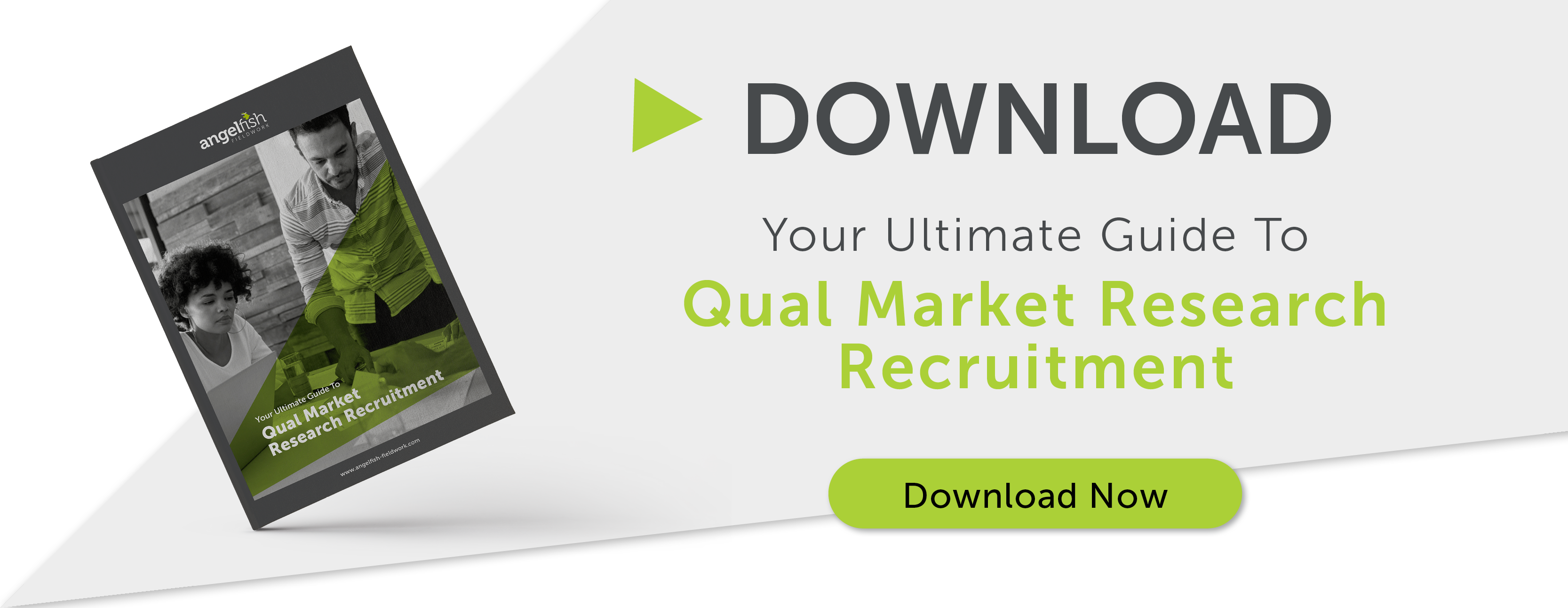
Five tips for expert respondent validation in online market research
in Online Qual
by
Kelly Barnard
Expert respondent validation is an integral part of the fieldwork process:
As a market researcher, part of the recruitment process for your online study is validating participants to make sure they’re the right choice for your market research online community or online focus group.While someone might seem like the perfect candidate on paper, respondent validation gives you the chance to get more information and build a strong rapport to make absolutely sure that your first impression was the right one.
For an effective study, your participants need to be reliable, easy to work with, flexible and meet the necessary criteria - and the good news is, it only takes a quick phone call or a mini-interview process to ensure you’ve found a participant that ticks all the boxes!
Here are some top tips and tricks for expert respondent validation:
1. Pre-qualify respondents using a self-complete questionnaire
If you want accurate information from the get-go, it’s important to pre-qualify all your respondents. It only takes between two to five minutes, but it will save you a lot of time in the long run.A good idea is to build a pre-qualifying questionnaire or a screener that your respondents can complete online that includes questions that will narrow down your selection of people.
Examples of the types of questions you should include are general questions confirming things such as their age, location, gender and job title, as well are more specific “probing” questions that allow you to understand more about their behaviour specifically relating to the product or service in question.
By including these types of questions you’ll ensure you have a good mix of both demographics and behaviour profiles, so you can be confident you take forward only the strongest participants to the next stage of your research.
You’ll also set a good foundation for building a rapport with participants, which will increase your chances of achieving full participant engagement during the research!
2. Get on the phone!
After qualifying respondents online, the next step when it comes to expert respondent validation is to speak to them on the phone.Speaking on the phone enables your participants to speak freely and go into more depth about their answers, which can help you to get to know your respondents and build a rapport with them.
By making sure your participants feel comfortable with you, when it comes to the research itself, they will be more likely to open up and share their thoughts and feelings.
As a result, you’ll have a better chance of accessing accurate and honest information, which will save both you and your participants’ time in the long run.
Just try to remember to follow a questionnaire to ensure you cover the key areas of the discussion and encourage a free-flowing discussion without venturing too far off track!
3. Ask them for an ID
An easy way to validate your respondents and make sure your participants are who they say they are is to ask them to send a picture of their ID.If the requirement for your online qual is that they own a specific product, you could even make it a fun pre-task and ask them to snap and send a picture of themselves with the product.
Not only will this further validate your participants so you can be completely sure you’ve got the best of the bunch, but it will also increase the credibility and validity of your research. Win win!
4. Put an exclusion list in place
Another way to make sure you only take forward the best participants that are most suited to your study is to put an exclusion list in place.An exclusion list will help to prevent you from seeing the same faces that apply to take part in market research time and time again, and will also make sure that you don’t end up with any respondents that don’t fit the exact demographic you’re looking for.
It’s important to ask your exclusion questions early in the recruitment process so you can filter out any unsuitable respondents as quickly as possible and ensure that only the very best participants go on to answer all the questions.
5. Don’t ask leading questions
Whilst we’re on the subject of questions, asking the right type of questions is another key part of respondent validation and a great way to ensure that you are speaking to the right people.Instead of asking your participants leading questions, make sure you ask questions without giving them options or even the obvious answer.
This will make it harder for them to determine the elimination criteria, which means you can be sure you’re taking the right people forward.
For example, when asked “Do you work for a competitor company?” any candidate can guess the ‘correct’ answer and might lie to get selected. Instead, you can avoid this by asking questions such as "Where do you work?" or "Tell me about your job". The devil is in the detail!
Expert respondent validation is an essential part of the market research recruitment process.
After all, by putting more effort into recruiting the right people for your research by probing with the right questions and building a strong rapport, you’ll get higher-quality responses in a more time-efficient manner.Here at Angelfish, our team are experts at respondent validation, so don’t hesitate to get in touch if you’d like to chat about getting respondents for your next study!
In the meantime, if you want to find out more about recruiting the best possible participants for your online study, be sure to download our guide on how to write an effective recruitment questionnaire below.



-Feb-19-2026-09-59-49-0345-AM.png)










